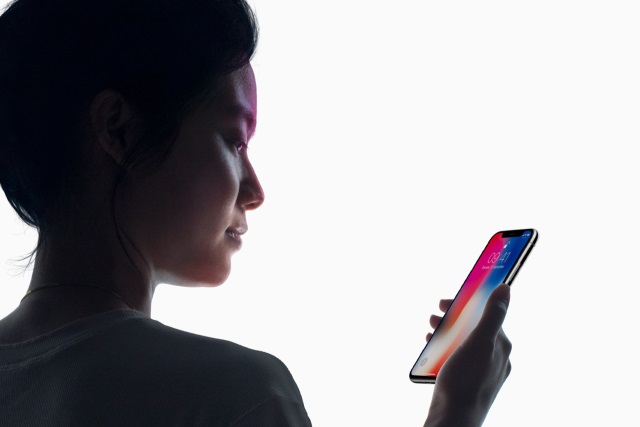
Does Facebook listen in via your microphone to tailor your ads?
It's something that has been rumored for years -- that Facebook is using the microphones on smartphones and computers around the world to listen in on conversations. Is it that the social network is particularly interested in hearing what everyone has to say? Sort of -- rumor has it that the company wants to know what you're talking about so it can deliver carefully targeted ads.
A surprising number of Facebook users believe that Facebook is listening to them. They say that following conversations about a topic, they then see ads related to it. But is this really because of Facebook?

New York Times launches Tor Onion Service to overcome censorship and ensure privacy
The New York Times has announced that it is launching a Tor Onion Service version of its website. The new, more secure way to access the site will open it up to people around the world whose internet connections are blocked or monitored.
It also caters to a growing breed of people who are concerned about what their web browsing habit might reveal and who have turned to Tor to protect their privacy.

HomeHack vulnerability could allow your LG robot vacuum to spy on you
Researchers at threat prevention specialist Check Point have uncovered a vulnerability which could allow hackers to gain control of the LG Hom-Bot robot vacuum cleaner's video camera.
The camera normally sends live video to the associated LG SmartThinQ app as part of its HomeGuard Security feature. Once in control of a specific user's LG account, any LG device or appliance associated with that account could be controlled by the attacker -- including the robot vacuum cleaner, refrigerators, ovens, dishwashers, washing machines and dryers, and air conditioners.

CyberScout launches one-stop marketplace for identity management
Recent breaches like that at Equifax have highlighted the importance of supporting victims with identity management services in the aftermath of an attack.
Identity and data defense firm CyberScout is launching a comprehensive marketplace for identity management, privacy, and cyber security education products and services, aimed at providing individuals with a one-stop-shop solution for all services relating to cyber protection.

Consumer group Which? calls for amendments to Data Protection Bill to allow for 'collective redress' after breaches
UK consumer group Which? is calling on the government to make an amendment to the Data Protection Bill that's currently being debated in Parliament. The group is looking for a change in the law that would make it easier for organizations to seek redress for groups of people in the event of a data breach.
Research by Which? suggests that there is confusion surrounding who is responsible for safeguarding data, and little knowledge among consumers about how to go about obtaining compensation.

Many businesses remain unprepared for GDPR
A shockingly large proportion of businesses have no idea how to behave when GDPR comes into play, a new report by the DMA has claimed.
More than half of marketers surveyed (56 percent) believe they’re on the right track, with four percent actually saying they’re ahead in their plans of being compliant by May 2018.

Privacy Shield gets EU's nod of approval
Last year’s framework which organized how Washington uses and protects data from EU citizens gets the nod of approval of the European Union this week.
The EU-US Privacy Shield, a data pact which replaced the old Safe Harbor agreement, went through its first annual review. The general conclusion is that the United States has lived up to its promise to better protect data from EU citizens when they are transferred over the Atlantic.

WhatsApp gains location sharing allowing real-time tracking
Following the lead of Facebook Messenger and iMessage, WhatsApp is gaining a location sharing feature. It's something that was tested earlier in the year, and now it has been deemed ready for prime time.
The "Share Live Location" feature can be enabled for a fixed period of time -- you can choose between 15 minutes, an hour, or 8 hours -- or you can manually switch it on and off as required. When enabled, WhatsApp will report your location to your contacts.

Apple responds to iPhone X Face ID privacy concerns but dodges law enforcement request query
One of the undeniable highlights of Apple's iPhone X is Face ID -- the face recognition technology that makes it possible to unlock a phone with a glance. While exciting and impressive, many people have security and privacy concerns about the feature, and last month Senator Al Franken wrote to Apple asking a series of questions and outlining his worries.
Apple has now responded to Franken, just ahead of the launch of the iPhone X in a little over two weeks. The company points to a series of documents that have already been made public, but also goes on to provide some detail about how Face ID data is stored and used.

PureVPN scrambles to defend itself against accusations of logging users
Last week it transpired that PureVPN had helped the FBI track down a cyberstalker from Massachusetts. This came as something of a surprise to other PureVPN users who were under the impression that using the service made them completely anonymous -- a belief strengthened by the company's assertion "We do NOT keep any logs that can identify or help in monitoring a user's activity."
Strictly speaking, this is true, but that's not to say that the company doesn’t maintain IP logs that can be used to identify users. The company does exactly this, logging IP addresses and timestamps, and this is how it helped the FBI. In a blog post, the company tries to explain this as it attempts to convince concerned users that it is not logging their activities.

Windows 10 telemetry violates privacy laws
The data collecting activities of Windows 10 has landed Microsoft in trouble again. Investigating the telemetry built into the operating system, the Dutch Data Protection Authority (DPA) has said that Microsoft's spying is a violation of local privacy laws.
Of particular concern to the authority is the fact that users are not clearly told that data will be collected in both Windows itself and Microsoft Edge. With Microsoft's web browser gathering data about every URL that's visited by users who have not opted out of telemetry, and Windows 10 itself sucking up detailed information about app usage, the DPA is concerned that users are not adequately informed or protected.

OnePlus opens up about its secret data collection and promises an opt-out opportunity
Last week it emerged that OnePlus has been secretly gathering a huge amount of data from handsets, revealing a wealth of personally identifiable information about their users. Now the smartphone company has spoken out in response to the uproar, and vowed to give users the ability to opt out of data collection.
Company founder Carl Pei took to the OnePlus community forums to explain why data was collected, stressing that OnePlus takes privacy seriously. But while Pei promises that an update is on the way by the end of the month that will introduce the ability to opt out of telemetry, users are still not happy, and many questions remain -- particularly about the secrecy involved.

Some Google Home Minis found to be secretly recording everything they hear
With the Google Home Mini, the search giant was hoping to get its smart speaker into more homes than ever before. But the latest privacy revelation about the device means that people may think twice about buying one.
Artem Russakovskii from Android Police was the first to -- publicly -- talk about the issue. He noticed that his Google Home Mini was active and recording sound throughout the day, not only when he uttered the "OK, Google" keyword. Google says that the privacy violation is down to a bug.

The 10 phishing subject lines you're most likely to click
Phishing is still a key tool for cyber criminals as they seek to insert malware onto machines and to get hold of personal details.
Although most people are aware of the threat there are still some subject lines that are much more likely to deliver results for the phishermen than others, according to security awareness training specialist KnowBe4, which has released its Top 10 Global Phishing Email Subject Lines report for the third quarter of 2017.

73 percent of CFOs trust the cloud for financial data
Chief finance officers are becoming more confident about the use of the cloud to store their company's data according to a new survey.
The study from cloud performance management company Adaptive Insights finds that just three years ago only 33 percent of CFOs trusted the cloud for their financial data, but today 73 percent do so.
